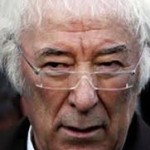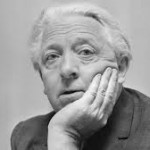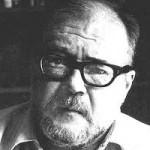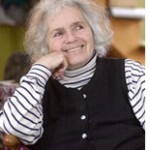 Years ago, when my former husband had just been hired at the University of Delaware, the then-Department Chair offered to fly me from Arkansas to Delaware to look for a house for our family. (Can you imagine that now?) The night I arrived, there was a guest poet reading. I was invited. The poet was the late, great, silver-haired Seamus Heaney. I’d read a few of his poems, but basically I didn’t know squat. At the reception—which was quite intimate, at someone’s house—we were brushing shoulders, picking up cheese and crackers. I could have said anything, asked him anything. But I couldn’t think what to say.
Years ago, when my former husband had just been hired at the University of Delaware, the then-Department Chair offered to fly me from Arkansas to Delaware to look for a house for our family. (Can you imagine that now?) The night I arrived, there was a guest poet reading. I was invited. The poet was the late, great, silver-haired Seamus Heaney. I’d read a few of his poems, but basically I didn’t know squat. At the reception—which was quite intimate, at someone’s house—we were brushing shoulders, picking up cheese and crackers. I could have said anything, asked him anything. But I couldn’t think what to say.
 During our first year at the University of Delaware, Sir Angus Wilson was a guest faculty member. I was teaching part-time there and was a grad student at the University of Arkansas, studying long-distance for my exams. I could have taken Angus’s course, but I didn’t. I think I was afraid of making a fool of myself.
During our first year at the University of Delaware, Sir Angus Wilson was a guest faculty member. I was teaching part-time there and was a grad student at the University of Arkansas, studying long-distance for my exams. I could have taken Angus’s course, but I didn’t. I think I was afraid of making a fool of myself.
The great poet James Wright (below) spent a semester at Delaware the year before he died. We took a long walk in the woods together with his wife Annie and some friends. I remember his singing the French Chef’s song from Sesame Street to our son. At least we could talk of burls on trees, fall leaves on the stream, and Sesame Street. 
While I was at Delaware, we hosted—you may recognize some or most of these names—Rita Dove, Charles Simic, Stephen Dunn, Dabney Stuart, Michael S. Harper, Camille Paglia, Lucille Clifton, Galway Kinnell, Grace Paley (below), Susan Sontag, Ann Beattie, William Gaddis, Christopher Hitchens, Nicholas Kristof, Barry Hannah, Donald Barthelme, Charles Johnson, I could go on and on. And of course we had Gibbons Ruark, Jeanne Murray Walker, and W. D. Snodgrass, (et moi), on the faculty. I became friends with some, others not.
 I wonder now, what CAN we get from other writers, particularly those who leave us awestruck? What can we get, period, from each others' presence in such situations?
I wonder now, what CAN we get from other writers, particularly those who leave us awestruck? What can we get, period, from each others' presence in such situations?
Back then, I thought it was a game of who knows stuff and who doesn’t. But no. I'm certain now that it isn’t the exchange of information that matters, it’s the presence of one whose life has been utterly given over to, to, to something—to expression, to art, to seeing, to knowing, I don’t know what to call it, but I know it when I see it, the face of complete abandonment, not just abandonment, but abandonment TO something. To something worth everything.
A comment from another great, Jim Harrison: “Though I don’t teach I often get sought for advice from young poets. I say I don’t have time for you unless you’re going to give your life to it. That’s what it takes.”
It seems that we “absorb” from others more than we “exchange.” I may not have missed out on anything when I was struck silent. All the great and modestly-great people I’ve been in the presence of, something has passed between us that’s changed me. And maybe them.
Of course the same thing can be said of books. There’s an actual exchange. We absorb each other. We change each other. Which makes it matter, I think, WHAT we read. Which makes it matter HOW we read, what we’re after when we read.
●
A note: No Need of Sympathy has been nominated for the William Carlos Williams Award, the UNT Rilke Prize, as well as the Kingsley Tufts Award. Any one of those would make me pretty happy.
